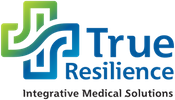IASIS Microcurrent Neurofeedback
There are many conditions in which the brain “freezes” in a dysfunctional pattern. This can happen after a physical (ex traumatic brain injury), chemical (ex carbon monoxide, heavy metals, solvents, mold toxins), and/or a mental/emotional injury (ex PTSD).

After these disruptions, the brain isn’t always able to regulate itself and get back to normal. This results in the following symptoms and conditions:
- Post-Concussive Syndrome
- Anxiety / Depression
- ADD / ADHD
- Autism Spectrum Disorders
- PTSD
- Substance Abuse / Addiction
- Changes in Memory
- Dizziness / Vertigo
- Insomnia
- Post-Stroke Sequelae
- Headaches / Migraines
- Erectile Dysfunction
- Chronic Fatigue
- Seizure Disorders
- Tremors (Parkinson’s Disease)
- Fibromyalgia
- Raynaud’s Disease
- Irritable Bowel Syndrome (IBS)
- Inflammatory Bowel disease (Crohn’s, Ulcerative Colitis)
IASIS is a passive form of neurofeedback that uses a small amount of electrical current to create a temporary fluctuation in brainwaves. This releases the brain from its dysfunctional patterns, like rebooting a frozen computer.
The great thing that sets IASIS MCN apart from other devices or “rewiring” modalities, is that the patient does not have to actively participate in the process. It’s non-invasive and only takes 30 minutes per session. You sit in a comfy chair and relax! There is no re-triggering of traumas or disorders like with other forms of neurofeedback.
Another plus to IASIS, is that unlike other neurofeedback devices that can take 30-60 sessions for enduring results, IASIS only takes 10! Results have also been seen in just 1-3 sessions!!
How IASIS Microcurrent Neurofeedback Works
- It balances the tone of the ANS, re-activating the rest, digest, and heal functions of the body.
- It “reboots” over-active and over-worked areas of the brain using a small amount of electrical current (1/100 of the current supplied by a AA battery).
- It activates the brain’s lymphatic system to clear out metabolic waste and amyloid plaques, allowing the neurons to resume their normal metabolic processes.
- It restores abnormal slow delta waves (abnormal slow delta waves are correlated with physical and/or chemical injuries to the brain). This normalizes brain scan (EEG) findings.
Through the above effects, IASIS MCN increases the amount of processing power or bandwidth that the brain has to work with. This means that patients who undergo treatment have better focus, less stress, breathe more deeply, and are able to engage with the world in more meaningful ways.
Microcurrent Neurofeedback vs Similar forms of Therapy
- Transcranial Magnetic Stimulation (TMS) can be overstimulating for patients, causing them to feel tired, wired, spacey, nauseated, or have an exacerbation of their symptoms.
- Traditional Neurofeedback is an active process requiring conscious attention to breathing or other brain functions. Traditional neurofeedback requires 30-60 sessions for enduring results.
Patient Testimonial
I have had a lifelong struggle with anxiety and depression. Testing with the Brain Gauge showed an underperforming prefrontal cortex, which I think is basically ADHD, which means poor focus, inability to complete or start tasks, emotional dysregulation etc. I’ve done EMDR and neurofeedback in the past with some okay results. But the microcurrent treatments have been profoundly effective for me. Especially with relief from ruminating on negative thoughts, which is like living under a dark cloud with a brain that wont turn off. After the full series I felt calm and awake enough to actually handle my life! If I start to ruminate I can catch it and redirect my thoughts. Totally life changing. ~ KP
IASIS Microcurrent Neurofeedback is easier and faster than other, similar forms of therapy. In its 10 years of use in medicine, 85% of patients notice improvements in their condition within 1-3 sessions with enduring sustainability being reached after only 10 sessions.
Our schedule fills up quickly so call the office to book. (602) 753 - 6373.
Or Click below to submit a form mentioning this special.
If you would like a copy of the study done on the effects of IASIS MCN on patients with traumatic brain injuries, please email the office. You can also find the study here: https://microcurrentneurofeedback.com/.
